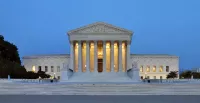Florida State University, established in 1851 in Tallahassee, Florida, is a public research university and a senior member of the State University System of Florida. Designated as a preeminent university within the state, it holds the distinction of being located on Florida's oldest continuous site of higher education.
1902: First Official Varsity Football Team
In the fall of 1902, Florida State University fielded its first official varsity football team, then known as "The Eleven".
1904: First State Champions of Florida
In 1904, the Florida State football team became the first ever state champions of Florida.
1905: FSU became the state college for women
In 1905, FSU became the state college for women.
1905: Passage of the Buckman Act
In 1905, the Florida Legislature passed the Buckman Act, reorganizing the Florida college system.
1911: Florida Supreme Court Decides Westcott Will Issue
In 1911, The Florida Supreme Court decided the Westcott will issue in favor of the state, stating that the change in character was within the intent of the Westcott will.
1919: Florida State Size Among State Universities
Until 1919, Florida State was the largest of the original two state universities in Florida.
1920: University facility founded
In 1920, the university facility (later called Camp Flastacowo) was founded as a retreat for students.
1930: The Ringling Museum Opened
In 1930, The Ringling Museum, the State Art Museum of Florida, located in Sarasota, Florida, opened its doors.
1930: Acquisition of the FSU Southwest Campus
In 1930, the FSU Southwest Campus was acquired by the university, formerly known as "The Farm".
1933: FSCW Size and Awards
By 1933, the Florida State College for Women had grown to be the third largest women's college in the US, and was the first state women's college in the South to be awarded a chapter of Phi Beta Kappa.
1935: Establishment of Student Government
The student government was established in 1935 and consists of executive, judicial, and legislative branches.
1940: Student Activities Facility Opens
In 1940, a student activities facility first opened at the Rowena Longmire Student-Alumnae building.
1947: Return to Coeducational Status and Designation as Florida State University
By 1947, the Florida Legislature returned the FSCW to coeducational status and designated it Florida State University.
1947: FSU ended being state college for women
In 1947, FSU ended being state college for women.
1947: Reforming Male Collegiate Sports and Choosing the Seminoles Name
In 1947, after the hiatus when FSU was a women-only college, FSU students voted to use the name "Seminoles" as the university collective name and symbol.
1947: Seminoles Name Chosen
In 1947, the name Seminoles was chosen by students and is officially sanctioned by the Seminole Tribe of Florida.
1950: High Energy Physics program established
In 1950 the High Energy Physics program at Florida State was established.
1956: Construction of Strozier Library and Tully Gymnasium
In 1956, Strozier Library and Tully Gymnasium were built.
1956: Alma Mater Composed
In 1956, the alma mater for Florida State University was composed by Charlie Carter.
1959: Discontinuation of Journalism Department
In 1959, the Journalism department was discontinued.
1962: First African-American Undergraduate Student Admitted
In 1962, Maxwell Courtney became the first African-American undergraduate student admitted to Florida State.
1965: First African-American Athlete Joins FSU Baseball Team
In 1965, Fred Flowers joined the FSU baseball team as the first African-American athlete in university history.
1966: First African-American Basketball Player
In 1966 Lenny Hall became the first African-American basketball player for Florida State.
1968: First African-American Football Player
In 1968 Calvin Patterson became the first African-American player for the university football team.
1972: Margaret Menzel Class-Action Lawsuit
In 1972, Margaret Menzel, a professor in the biology department, led a class-action lawsuit charging discrimination against women in pay and promotion.
1975: Settlement of Margaret Menzel Lawsuit
In 1975, The Margaret Menzel case was settled with an agreement that the university would establish a task force to investigate bias against women at the university and to revise its anti-nepotism policy.
1979: The Southeast Review Founded
In 1979, The Southeast Review, a literary journal, was founded as Sundog.
1980: Bill Wade Elected Homecoming Princess
In 1980, Bill Wade, a gay male student, was elected homecoming princess using the name "Billie Dahhling".
July 1982: FSU Assumes Control of Panama City Campus
In July 1982, FSU assumed control of the Panama City campus.
1984: Dirac Papers Donation Begins
From 1984-1997, Dirac's wife donated papers related to Dirac's work at FSU and Cambridge University.
1987: Start of Top Five AP Poll Ranking Streak
From 1987, the Seminoles football team started their streak of finishing ranked in the top five of the AP Poll for 14 straight years.
1987: Completion of New Panama City Campus
In 1987, a new 26-acre waterfront site for the Panama City campus was completed.
December 1989: Opening of the Paul A. M. Dirac Science Library
The Paul A. M. Dirac Science Library opened in December 1989 as the main science library for Florida State University.
1990: National Science Foundation Award
In 1990, the National Science Foundation (NSF) awarded Florida State University the right to host the new National High Magnetic Field Laboratory.
1993: National Championship Win
In 1993, the Seminoles played in a national championship game and won the championship under head coach Bobby Bowden.
1997: Dirac Papers Donation Ends
From 1984-1997, Dirac's wife donated papers related to Dirac's work at FSU and Cambridge University.
1999: National Championship Win
In 1999, the Seminoles played in a national championship game and won the championship under head coach Bobby Bowden.
June 2000: Approval of the FSU College of Medicine
In June 2000, the Florida Legislature approved the creation of the allopathic Florida State University College of Medicine.
2000: End of Top Five AP Poll Ranking Streak
The Seminoles football team's streak of finishing ranked in the top five of the AP Poll ended in 2000 after 14 straight years.
2001: Fifth National Championship Game
In 2001, the Seminoles played in their fifth national championship game.
2005: NCAA Waiver for Seminole Imagery
In 2005, FSU's use of the Seminole imagery was granted an NCAA waiver, due to the coordination the Seminole Tribe of Florida has with Florida State.
2006: Individual Champions in 2006
In 2006 Head Coach Bob Braman and Associate Head Coach Harlis Meaders helped lead individual champions in the 200 m (Walter Dix), the triple jump (Raqeef Curry), and the shot put (Garrett Johnson).
2006: Seminole Soccer Complex Home Record
In 2006, the Seminole Soccer Complex set a home record of 4,582 for the game versus the University of Florida.
2007: Second Straight Men's Track & Field NCAA National Championship
In 2007, FSU won its second straight men's Track & Field NCAA National Championship when Dix became the first person to hold the individual title in the 100 m and 200 m.
June 2008: Addition of the King Life Sciences Building
In June 2008, the King Life Sciences Building was added to complement medical research with research in related fields.
2013: Designation as a Preeminent University
In 2013, the Florida Legislature and the Florida Board of Governors designated Florida State University as one of the first two "preeminent universities" among the twelve universities of the State University System of Florida.
2013: Anti-Discrimination Policy Established
Official university policy established in 2013 prohibits discrimination against multiple protected groups, including the LGBT community.
2013: National Championship Win
The 2013 Seminoles football team won a national championship in 2013 under Jimbo Fisher.
November 20, 2014: School Shooting
On November 20, 2014, a shooting occurred on the university campus where a shooter injured three and was shot dead by police.
2014: Social Mobility Index Ranking
In 2014, Florida State is ranked the 29th top college in the United States by Payscale and CollegeNet's Social Mobility Index college rankings.
2017: Ranking for Most Efficient Universities
In 2017, Florida State was ranked one of the most efficient universities.
2018: Replacement of Goldstein Library with Innovation Hub
In 2018, the Goldstein Library was replaced with the Innovation Hub, a technology hub, makerspace, and design-thinking center.
2019: FSU College of Business Ranking
For 2019, the FSU College of Business was ranked 27th undergraduate program among all public universities and 44th among all national universities.
February 14, 2022: Fitch Ratings Affirms FSU Issuer Default Rating
On February 14, 2022, Fitch Ratings affirmed the FSU Issuer Default Rating at AA+ with a stable outlook.
August 2023: Alumni Count
As of August 2023, Florida State University has over 400,000 alumni located in all fifty states and in many countries.
2023: Entering Freshmen Class Statistics
For the Fall 2023 entering freshmen class, the average admitted student had a weighted GPA of 4.26, and the acceptance rate for admission in 2023 was 25.4% for 74,038 freshman applicants.
2023: Panama City Campus Student Engagement
In Fall, 2023 the campus had over 1200 students engaged in undergraduate and graduate degree programs.
2023: Annual Research Expenditures
In fiscal year 2023, Florida State University was awarded over $414 million in annual research expenditures in sponsored research.
2023: R&D Expenditures Data
Per 2023 National Science Foundation data, Florida State University had research and development (R&D) expenditures of $414.46 million and ranked 79th out of 890 evaluated institutions.
2024: Financial Endowment and Assets
As of 2024, FSU's university-wide financial endowment was $785.2 million with total assets valued at $1.03 billion.
2024: Seminoles had the third-most College World Series appearances
As of 2024, the Seminoles had the third-most college world series appearances.
2024: Enrollment of 44,308 students
In 2024, Florida State University enrolled 44,308 students from all 50 states and 130 countries.
2024: Free Speech Ranking
In 2024, Florida State University ranked third in the United States for free speech and thought in a ranking released by the Foundation for Individual Rights and Expression.
2024: Student Demographics
In 2024, Florida State University students, numbering 44,308, came from more than 130 countries, and all 50 U.S. states.
2024: Rankings and Awards
In 2024, Princeton Review's Best Value Colleges ranked FSU the top public university in Florida and sixteenth nationally.
Mentioned in this timeline

News encompasses information about current events disseminated through various media...

Football is a family of team sports primarily involving kicking...
Florida a state in the Southeastern United States is largely...

Bobby Bowden was a highly successful American college football coach...

War is defined as an armed conflict involving the armed...

A supreme court or court of last resort is the...
Trending

20 minutes ago Cameron Boozer: Duke Forward, Elite Numbers, and Wooden Award Favorite

20 minutes ago Josiah Harrell's Sensational UFC Debut After Rare Brain Disease Diagnosis: A Houston Story

21 minutes ago Rajah Caruth shines at JR Motorsports; Mayer takes pole; Mears avoids crash.

21 minutes ago Anthony Black scores 20 points in Magic's Thursday's victory, Desmond Bane contributes.

21 minutes ago Yaxel Lendeborg's life story, Michigan rise, and draft prospects are revealed.
1 hour ago Alabama Basketball Faces LSU: A Crucial Road Matchup and Maturity Test Looms
Popular

Jesse Jackson is an American civil rights activist politician and...

Barack Obama the th U S President - was the...

Ken Paxton is an American politician and lawyer serving as...

Bernie Sanders is a prominent American politician currently serving as...
Randall Adam Fine is an American politician a Republican who...

Michael Joseph Jackson the King of Pop was a highly...